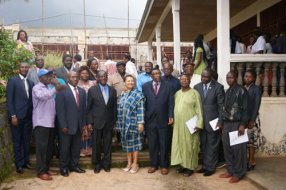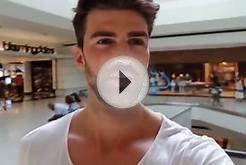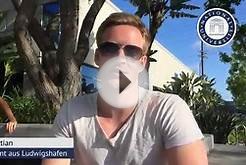Increasing numbers of university students are opting to spend one or two semesters studying at a university in another country. A "semester" is the American word for "term, " which is half of the academic year. Semesters are three or four months long and run from late August or September through December and January through May.
Universities in many states have developed semester-long programs for international students who want to study in America yet have limited time and resources. Attending university in the USA for just one or two semesters provides an opportunity to experience U.S. campus life without the pressure of completing a degree program. In most programs, students can enroll in a wide variety of classes, without concern for completing required courses or, in some cases, prerequisites to enter a major field of study.
These unique semester programs give provide students with the opportunity to adjust to another culture, study a variety of subjects and improve English skills in just a few months' time. The transition is eased by helpful semester abroad staff, who are available for guidance. With their support, it's easier and less stressful for students to acquire useful skills and intensively learn subject matters in a relatively short period of time. Furthermore, international students begin the program together and often help one another adjust to their new environment.
Differences in Approach
Students in the Semester Abroad program, offered by the American Language and Culture Institute (ALCI), California State University San Marcos (CSUSM), find that embracing the challenges, thrills and differences of a new culture are often the most rewarding aspects of a student’s study abroad experience.
"It opened my picture of the world in a positive way, " commented Maria Kanerva, a student from Finland.
Semester Abroad students at California State University San Marcos, are encouraged by the small class sizes, lively interactions between class members and professors, and the variety of class assignments.
Fewer students per class section allows for ample interaction between professors and students. According to Mijeong Kim, a student from Korea, this creates a "free atmosphere" that inspires students to seek broader perspectives and challenges them to better understand their own worldviews.
Group activities and team projects often accompany this interactive and collaborative classroom atmosphere, helping students learn how to work together efficiently. For example, Professor Glen Brodowsky, CSUSM College of Business Administration, requires students in his Global Business Management course to work in multi-cultural groups to complete a group presentation as their final project.
At CSUSM, instead of having just one or two exams determine a grade, students complete frequent homework assignments, tests and quizzes. These numerous, diverse assignments help students master their material and succeed in an American university.
A Valuable Experience
Hanna-Reeta Hirvonen summarized her experience with Semester Abroad, "This has been such a great experience so far, I would LOVE to stay for another semester…. I hope I will be able to come back some day, even for a vacation."
In spite of surprises, differences, and challenges, Semester Abroad provides a valuable experience for students who take advantage of the opportunity. If you are considering a semester or a year abroad, I encourage you to investigate the variety of semester or yearlong programs available in the USA
A Semester or a Year
International students who are enrolled in degree programs at home can spend a semester or a year in the International Visiting Students program at the. They have access to programs of study ranging from engineering, drama and accounting to logistics, geosciences and animal science.
An advisor helps with logistics and acculturation. The students have full use of university facilities and are assigned residence halls or apartments before they arrive in Fayetteville.
Students enrolled in the program can take English language support courses and leadership training seminars that expose them to American culture and values. In a debriefing, each student learns how best to use his or her managerial skills.
In their free time the students join educational field trips and enjoy nearby state parks, the Ozark National Forest and water sports on the Buffalo River.
Download Study in the USA® Magazines
New York University’s Center in Washington, DC
Through NYU Washington, DC’s semester study opportunities, undergraduates take courses taught by NYU faculty and attend lectures and cultural events of current relevance. Internship opportunities allow students to gain professional experience in the seat of the U.S. federal government.
For example, the academic center recently hosted a panel discussion on "How Have Women's Political Rights Fared in Egypt?" Political scientists and journalists analyzed changes under the new government and constitutional proposals as well as what they mean for the future of democracy and women's rights. NYU students participated in a question and answer session.
Students live in the top six floors of the University’s academic center in the nation's capital, located near the White House and many museums. An on-site residence manager and residential life staff provide guidance and plan student-life activities such as trips to the World Bank, the Smithsonian, and George Washington's home.
A Semester at the Metropolitan Campus in New York City
At NYU New York, University students can take courses in the fall and spring semesters, for the full academic year, during the summer, or for a three-week January term.
During the fall and spring semesters, guest speakers are regularly invited to speak in the classroom, and past speakers have included former President Bill Clinton, foreign correspondent Christiane Amanpour, music producer Swizz Beatz, and comedian Jon Stewart. In addition, class trips are planned to cultural institutions that may include the United Nations, the New York Stock Exchange, or the Guggenheim Museum.









